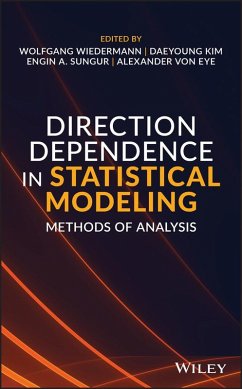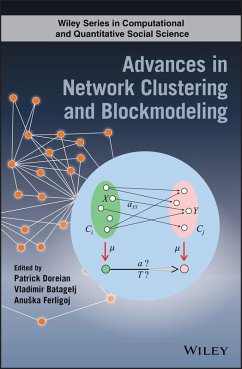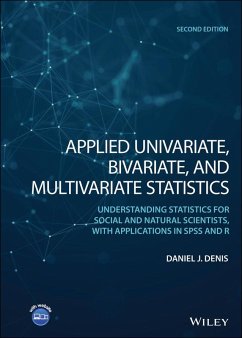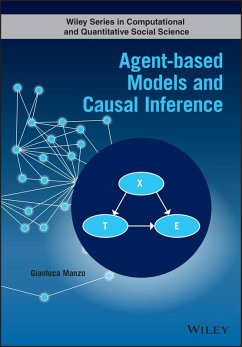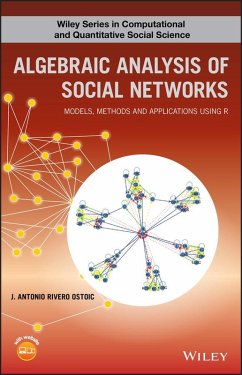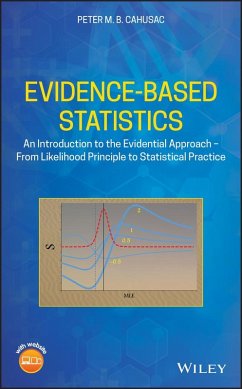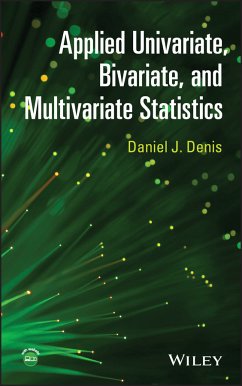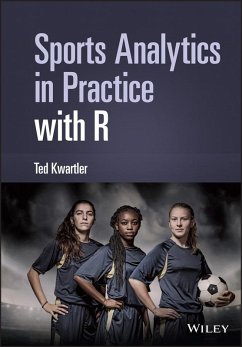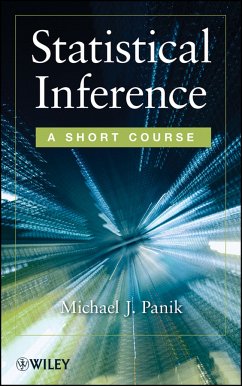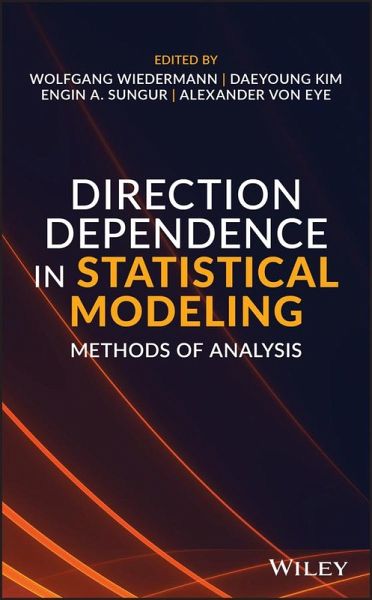
Direction Dependence in Statistical Modeling (eBook, ePUB)
Methods of Analysis
Redaktion: Wiedermann, Wolfgang; Eye, Alexander Von; Sungur, Engin A.; Kim, Daeyoung

PAYBACK Punkte
0 °P sammeln!
Covers the latest developments in direction dependence research Direction Dependence in Statistical Modeling: Methods of Analysis incorporates the latest research for the statistical analysis of hypotheses that are compatible with the causal direction of dependence of variable relations. Having particular application in the fields of neuroscience, clinical psychology, developmental psychology, educational psychology, and epidemiology, direction dependence methods have attracted growing attention due to their potential to help decide which of two competing statistical models is more likely to r...
Covers the latest developments in direction dependence research Direction Dependence in Statistical Modeling: Methods of Analysis incorporates the latest research for the statistical analysis of hypotheses that are compatible with the causal direction of dependence of variable relations. Having particular application in the fields of neuroscience, clinical psychology, developmental psychology, educational psychology, and epidemiology, direction dependence methods have attracted growing attention due to their potential to help decide which of two competing statistical models is more likely to reflect the correct causal flow. The book covers several topics in-depth, including: * A demonstration of the importance of methods for the analysis of direction dependence hypotheses * A presentation of the development of methods for direction dependence analysis together with recent novel, unpublished software implementations * A review of methods of direction dependence following the copula-based tradition of Sungur and Kim * A presentation of extensions of direction dependence methods to the domain of categorical data * An overview of algorithms for causal structure learning The book's fourteen chapters include a discussion of the use of custom dialogs and macros in SPSS to make direction dependence analysis accessible to empirical researchers.
Dieser Download kann aus rechtlichen Gründen nur mit Rechnungsadresse in A, B, BG, CY, CZ, D, DK, EW, E, FIN, F, GR, HR, H, IRL, I, LT, L, LR, M, NL, PL, P, R, S, SLO, SK ausgeliefert werden.




